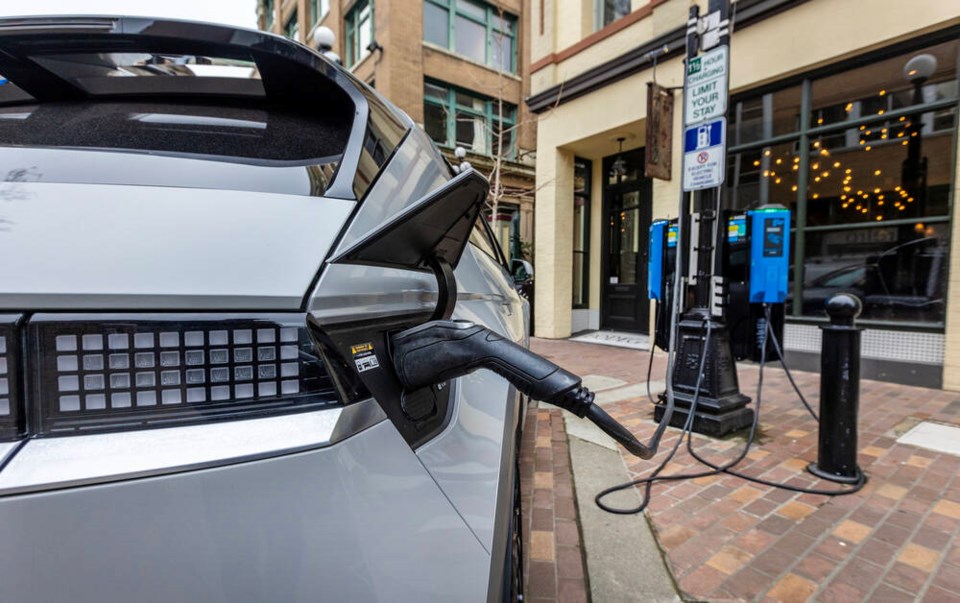All new developments in the District of North Vancouver will have to be pre-loaded with the capacity to charge electric vehicles.
At a meeting Nov. 4, council voted to move toward amending its zoning bylaw to include EV infrastructure standards for new construction.
In a report to council, staff said the updated policy will formalize the district’s existing regulations, bringing it in line with other municipalities including City of North Van, West Van and City of Vancouver.
The district has been encouraging EV charging infrastructure for new developments for around 10 years, said sustainability planner Adam Wright. In 2021, the district went further, updating its policy to encourage rezoning applicants to provide EV-ready parking for all residential and accessible parking spaces, as well as one-fifth of commercial and industrial spaces.
Because new provincial legislation limits municipalities’ ability to control new development applications on a case-by-case basis, Wright said it’s important to update the bylaw now so that EV charging standards automatically apply to future builds.
The proposed change will require EV-ready parking in all residential spaces (including hotels) and in 45 per cent of non-residential spaces. All spaces designated for car share must have an operating EV charger.
Staff recommended that the updated policy come into effect July 1, 2025, because that gives enough time to the new requirements to be included in plans for upcoming developments, and for staff to effectively communicate the changes to developers.
Having charging infrastructure in new developments is expected to reduce passenger vehicle emissions by encouraging people to buy EVs and charge them at home or at work, Wright said.
Can the electrical grid keep up with EV charging demands?
Coun. Jordan Back said a challenge still exists with older buildings that lack infrastructure that supports EV charging.
Wright said that existing multi-family buildings are a key area identified in the district’s overall EV strategy.
“Things like supporting public EV charging next to or near existing multi-family buildings, or better connecting residents of multi-family buildings with rebates, for example, are some of the actions we’re pursuing,” he said.
Coun. Herman Mah asked staff to explain why the requirement for EV charging in non-residential stalls has gone up to 45 percent, from 20 per cent previously.
“That’s generally in response to one of the insights from the EV strategy: The need to provide more support for workplace charging,” Wright replied.
Mah, who mentioned that he has an electric vehicle, said there are other carbon alternatives in the pipeline – like hydrogen – but a lot of stock is being put into EVs in a short amount of time.
“I just hope that there is enough electricity down the road,” he said. “That’s one concern that I have now when I start hearing that we’re going to need a couple more Site C dams to be able to have all the vehicles electrified.”
Mayor Mike Little expressed concern that builders could comply with the regulations without providing functional EV charging, noting one local development that included EV charging stations that weren't wired.
"How prescriptive do we need to be to make sure that doesn’t happen again?” Little asked.
Wright said that when they first introduced the policy 10 years ago, there was a greater variety of charging technologies.
“There was a lot of technologies that were able to meet that standard,” he said. “However, now it’s converging around a particular type of technology. So rather than providing electrical outlet, it would mostly be a junction box, which would enable most types of EV chargers.”



